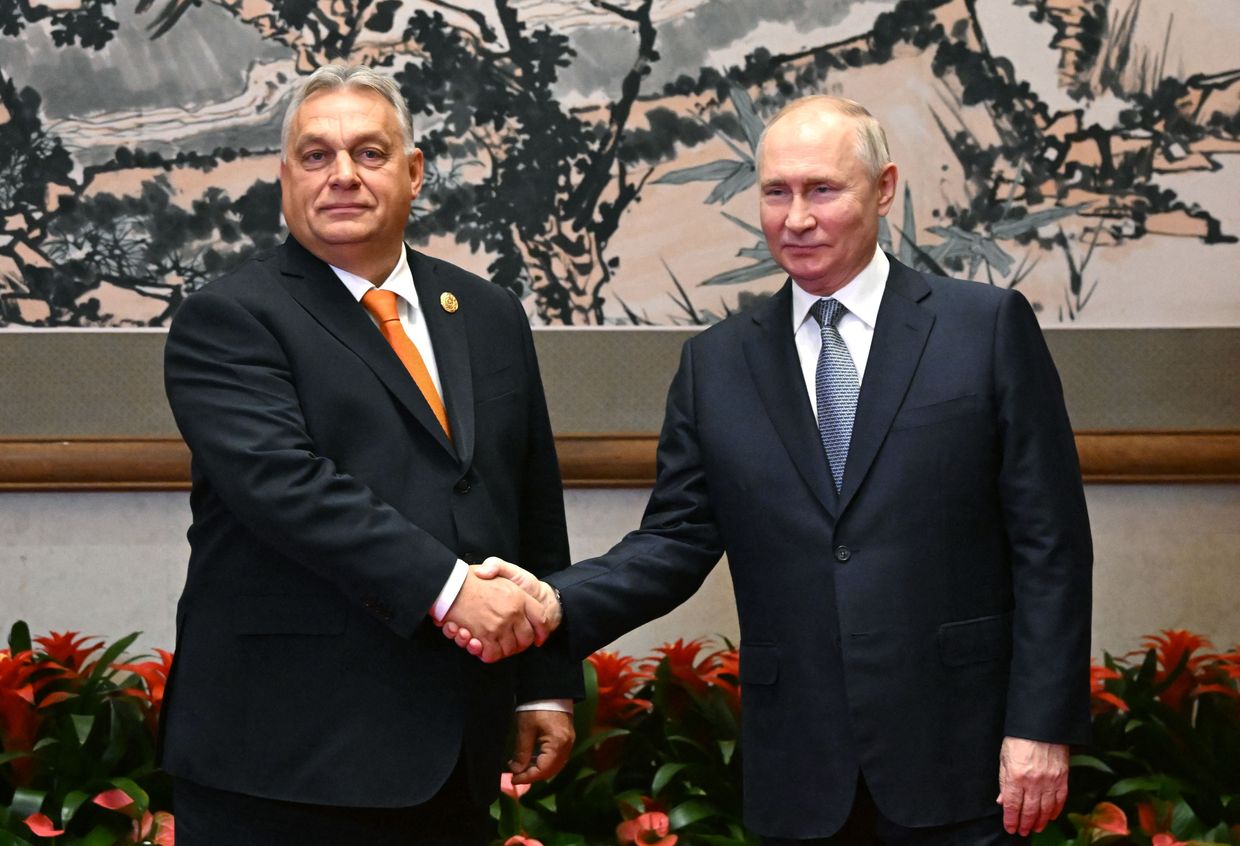Politico: Orban threatens to blow up EU's Ukraine policy

Hungarian Prime Minister Viktor Orban is threatening to block all future EU aid to Ukraine as well as Ukraine's accession to the bloc unless EU leaders agree to review their entire strategy of support, according to a letter seen by Politico journalists.
The Hungarian leader wrote a letter to the European Council chief Charles Michel stating that future decisions regarding Ukraine-EU accession talks, funding for Ukraine, and new sanctions on Russia cannot be discussed until a "strategic discussion" over current EU Ukraine policy is reviewed next month when EU leaders gather in Brussels.
“The European Council should take stock of the implementation and effectiveness of our current policies towards Ukraine including various assistance programs,” the letter reads.
According to Politico, the letter is undated but bears the stamp of Orban's office.
The letter also questions why the EU must continue to support Ukraine when the United States, the largest provider of military aid to the country, may not be able to continue sending aid due to partisan deadlock.
“The European Council must have a frank and open discussion on the feasibility of the EU’s strategic objectives in Ukraine...Do we still regard these objectives realistically attainable? Is this strategy sustainable without robust support from the United States? Can we take continuing support from the United States for granted?"
Orban also adds that "the European Council is not in a position to make key decisions on the proposed security guarantees or additional financial support for Ukraine, endorse further strengthening of the EU sanctions regime or agree on the future of the enlargement process unless a consensus on our future strategy towards Ukraine is found.”
Hungary has previously threatened to block talks on Ukraine's accession and is blocking 500 million euros in aid to compensate EU states for the weapons they sent to Ukraine.
Since the start of Russia's full-scale invasion of Ukraine, Hungary has repeatedly obstructed EU funds for Kyiv while opposing sanctions against Russia. Orban, who maintains close ties with the Kremlin, has refused to provide military aid to Ukraine and claimed that Kyiv's counteroffensive was destined to fail.
Both Orban and Hungarian Foreign Minister Peter Szijjarto have met with high-ranking Russian officials, including Putin, since Feb. 24, 2022. Szijjarto has also traveled to Russia five times since the beginning of the full-scale invasion.
A majority of Hungarians have expressed their disapproval of Orban's meeting with Putin at the Belt and Road Forum in Beijing on Oct. 17.












